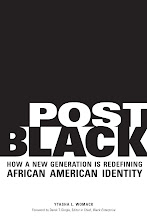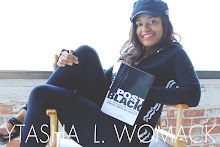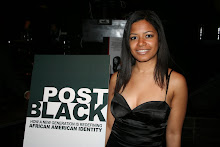
Organic lifestyle expert and author Nwenna Kai hopes to support people who are making the healthy lifestyle switch. She wrote the book The Goddess of Raw Foods and currently does consultations and caters her all raw food recipes. She also created www.the-guide-to-raw-foods.com. “My specialization is in raw foods and lifestyle movement. But I find that my target audience are people who are looking to include more raw foods in their diet,” said Kai. “Within the raw food community, most are extremist. They either don't drive or drive hybrid cards, they wear clothes made of hemp, they live a hippie lifestyle. I don't target that audience. I simply wanted to reach an audience that wants to eat healthier.”
YLW: How do you cultivate a raw food market?
NK: I am more interested in creating a market of people who want to have more raw food in their diet. I do have a very large African American following. I do some coaching with people. A lot of my clients are women who are in their 50s and 60s. They're fierce. They know they need to do something but don't know what to do.
YLW: How did you get involved with the raw food movement?
NK: One, I have a personal story with raw food. I've been vegetarian since I was 14, vegan since I was 18. I started eating raw food when I was 24, 25. I was very ill. I was tired all the time, acne, depression, a thyroid problem. I thought I was so healthy, and didn't understand why I was having problems. I started drinking liquids and eating vegetables for the next few days. I didn't know about raw food diet as a lifestyle. It was Feb. of 2000 in Chicago. I was with artists who were smoking. It was a very lonely experience. But within a few days, I had more energy, my acne cleared up, my vertigo went away, my depression went away. I took myself off of thyroid medication a few months later.
YLW: Did you immediately bond with other people who eat raw food?
NK: I found Karen's Raw Cafe, a raw food restaurant in Chicago. Karen Calabrese became a mentor to me. I moved out to LA in 2003, I was producing TV. It was hard for me to work 12 hours a day and eat the way I was eating. So I started catering. I had the restaurant for 4 years. Closed it down in 07 and now I do raw food consultations.
YLW: What is a raw food diet?
NK: It's a diet made up of organic fruit, vegetables, nuts, seeds, spouted grains and superfoods. Superfoods include hemp protein, which is a good way to include protein in a vegan diet, acai (pronounced asiya) which is a Brazilian berry, spirulina - a blue green algae full of protein, bee pollen, and cacao, what you make chocolate with.
YLW: Do you have to sell your clients on the benefits of raw food?
NK: I never have to sell people on it. They just don't get the 'how to.' People feel that the raw food diet is so limiting. The challenge I have is showing them the abundance in it. Also to eat intuitively. They want me to tell them just what to eat. You can sprout things, learn how to grow your own food. People think it's carrot sticks and celery. I can make a cheesecake, an apple pie, a blueberry cobbler all using very natural, and organic ingredients.
YLW: So you make raw food soul meals?
NK: Being African American I've learned how to tailor my food. I make a macaroni and cheese out of coconut meat. I have greens with kale and spices, it's just not cooked. I make a raw yam. I learned how veganize it.
YLW: Many people find that when they want to change their diet there's this resistance among friends and family. It's viewed almost as if you're abandoning your culture if you shift your diet.
NK: I can tell you stories upon stories. I've been vegetarian since I was 14. But my African American family still doesn't understand why I do what I do. My grandma asks do I eat fish. My uncle thinks I'm a snob. My aunt says you eat white people's food. There's a whole cultural tie to food. It's like you do as the tribe does.
You heard the story of the woman who cuts the ends of the turkey, and her mother does, and her mother did it, but no one knows why? Our culture is ridden with diabetes, heart disease. We still don't understand the connection between eating and lifestyle. The connection between diet and health, we're just not getting it. The fact that I don't eat chicken wings and pork and people have this view that I'm eating white people's food and it's ridiculous because it's killing us.
YLW: What causes this resistance?
NK: A big factor is that tie to the family. I had that fear. When I first started, I wouldn't tell anyone what I was doing. I would tell them I wasn't hungry. They knew I was vegan, but raw food only is very different. It's that social factor. Who am I going to eat with? Food is such a social part of our culture. Food in general contains memory. There's all of these other attachments to it,
YLW: What do you mean when you say that food has memory?
NK: I loved oatmeal as a child. I haven't given it up. Now I make a raw version of it. Oatmeal makes me feel comfortable. My mother used to always make oatmeal in the morning. Taking certain foods away is like taking those memories away. People think losing weight is just losing weight. But French fries make you feel a certain way that kale or avocado doesn't. We have a lot of work to do with that attachment.
The same person you're dating, you two probably eat alike. A lot of people have resistance because they realize they have to start changing their lifestyle. One woman I know has five kids, she had a very standard American diet. So there's a problem with her eating her food, and them eating something else.
YLW: You see a connection between the resistance to healthier eating, culture and identity?
NK: I was doing a lecture in a high school and mentioned sprouts, and the kids said, 'black people don't eat sprouts.' As humans, we tend to eat the same thing all the time. We tend to eat the same foods over and over. And with us, its like you eat what your family eats. Your aunt had diabetes, your mom has thyroid problems, but you keep eating the same food. We won't deter from our tradition to save our lives.
Our culture is crippled with disease and it's tied to the food. You can't get certain kinds of fruits and vegetables in ghetto supermarkets. Nina Simone has a song where she talks about that. You have that in L.A. In Chicago there are certain neighborhoods where you can't get guava, or pomegranate, or a mango. There are certain places where you can't get asparagus. So if someone wanted to eat healthier, imagine how hard it would be? How many people are going to go outside of their neighborhoods to go shopping two or three times a week?
YLW: Those areas are referred to as food deserts because there's no fresh or organic food in the neighborhood.
NK: There are a great deal of farmers markets in communities. In California we have it. But you can live in a high rise in New York and grow your own food. All you need is a window, sunshine and some water. You don't even need a patch of soil.
YLW: More people are changing their diets, though.
YLW: More people are changing their diets, though.
NK: It's more of a conversation now because of the health care issue and because people need serious help. People are in desperate situations. You have no idea how many emails I get a day. It's gotten so bad. It's weird now for me to see a kid who's not overweight. Thats' crazy.
I thought of being a black woman as being bigger and more voluptuous. Everyone in my family was big. So I felt I wasn't voluminous enough or wasn't big enough and as a result, wasn't black enough. Their parents would say oh, black women we're just bigger naturally, which is a lie. Black women are not naturally bigger women. It gets really, really heavy because this obesity issue and diabetes, and this health care thing. Health is going to be the million dollar question. It's like people are fighting for their health. Your health is your prosperity.
I thought of being a black woman as being bigger and more voluptuous. Everyone in my family was big. So I felt I wasn't voluminous enough or wasn't big enough and as a result, wasn't black enough. Their parents would say oh, black women we're just bigger naturally, which is a lie. Black women are not naturally bigger women. It gets really, really heavy because this obesity issue and diabetes, and this health care thing. Health is going to be the million dollar question. It's like people are fighting for their health. Your health is your prosperity.
YLW: There's a health divide?
NK: Absolutely. People are going to have to go back to the basics. Eat better, grow your own foods. Real simple stuff. It's not hard.



https://Eater.com/">food culture Your website is truly amazing! Every page is beautifully designed, easy to navigate, and visually stunning — absolutely worthy of appreciation.
ReplyDelete
ReplyDeletehttps://Eater.com/">food culture
Truly inspiring interview with Nwenna Kai!
Loved how it connects food, culture, and health.
Her story about identity through food is powerful.
Thanks for sharing such meaningful insights!